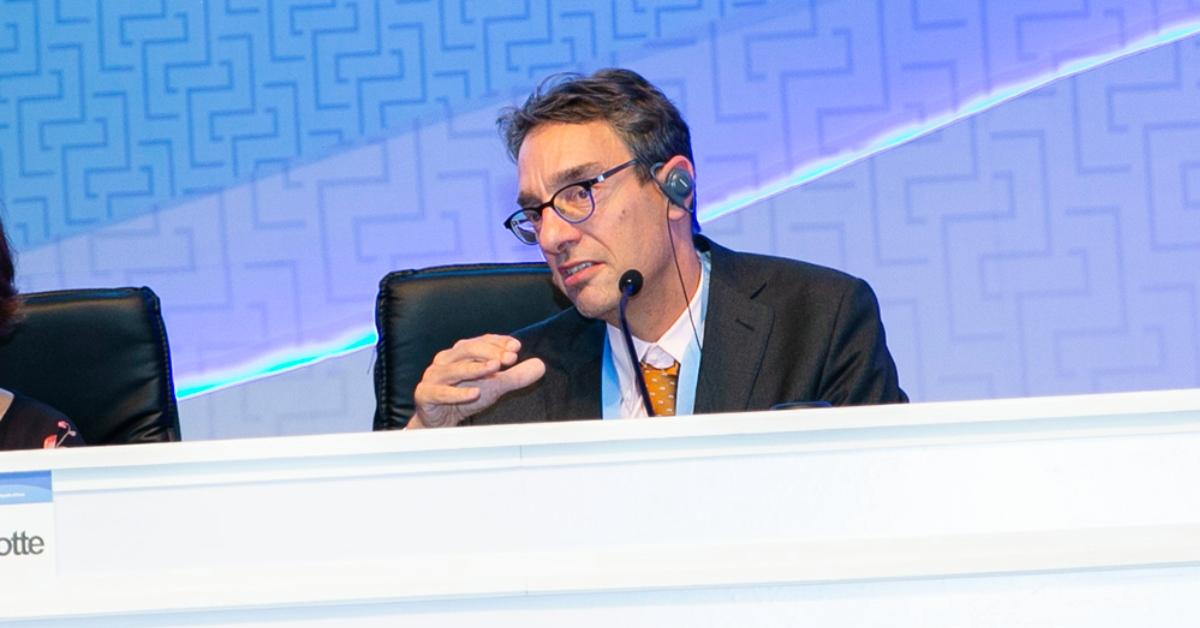Subscribe to trusted local news
In a time of both misinformation and too much information, quality journalism is more crucial than ever. By subscribing, you can help us get the story right.
- Subscription costs less than £1 a week with an annual plan.
Already a subscriber? Log in here.
29
Mar 2024
What the UK's top climate scientist wants from the next government

There can’t be many people whose grasp of environmental issues is broader than Professor Piers Forster’s. Locally, he’s patron of Zero Carbon Harrogate and has campaigned against the expansion of Harrogate Spring Water’s bottling plant, but in his day job he operates at a different scale altogether.
He’s professor of climate physics at the University of Leeds and director of the university’s Priestley Centre for Climate Futures, and since 2018 he’s also been interim chair of the government’s Climate Change Committee (CCC), representing the UK at the COP28 UN Climate Change Conference in Dubai last year. As a member of the Intergovernmental Panel on Climate Change (IPCC), he was instrumental in getting the world to aim for a global warming limit of 1.5°C and helped persuade the UK government to adopt its Net Zero 2050 target.
One week he can be talking about saving saplings in Rotary Wood, the next he’ll be advising on global carbon reduction targets.
When the Stray Ferret spoke to him at his home in Harrogate, he’d just got back from Oslo; in a couple of months he’ll be off to Bonn, in December it’s Azerbaijan, and at some point he expects to go to Beijing for bilateral talks with the Chinese government's advisers.
The irony of someone with his brief jetting off around the world is not lost on him. He said:
It is this sense of pragmatism – a practical approach rooted in an appreciation of the world as it is – that politicians across the spectrum value, and is perhaps why Prof Forster is still in post at the CCC six years after he was appointed to it temporarily.
He also appears to be a glass-half-full kind of climate scientist, a tendency that always goes down better than doom-mongering, which inevitably implies reducing services or spending more money.
He said:

Prof Piers Forster at the meeting in Incheon, South Korea, to approve the IPCC's 1.5<span class="TextRun SCXW232243427 BCX0" lang="EN-GB" xml_lang="EN-GB" data-contrast="auto"><span class="NormalTextRun SCXW232243427 BCX0">°</span></span>C report in 2018.
While the benefits to the environment of developing a more sustainable economy are clear, he says that there are business opportunities that could further incentivise their development. He said:
A prerequisite of Prof Forster's CCC role is that he remains broadly apolitical, lest the credibility of his advice be compromised by perceived partiality.
But he does worry that, faced with the apparently conflicting priorities of high office, governments often tend to do far less than they say they do. For example, the Prime Minister, Rishi Sunak, recently said that government plans to build new gas-fired power stations were in line with the recommendations of the CCC, which has said a "small amount" of gas generation without carbon capture is compatible with a decarbonised power system.
Prof Forster said:
Taking the difficult decisions on climate change is not something every government is willing to do, but which one would be best placed – or most able – to do that is not something that Prof Forster, as arguably the country's foremost climate scientist, can comment on. But he said:
Those “very big decisions” span a wide range of policy areas. In agriculture, he’d like to see less farmland given over to cattle and more reforested, in housing he'd like all newbuilds to be fitted with an air-source heat-pump to head off the necessity of retrofitting them in 20 years’ time, and he’d like HS2 and the Trans-Pennine high-speed lines built too. He said:
He adds:
0